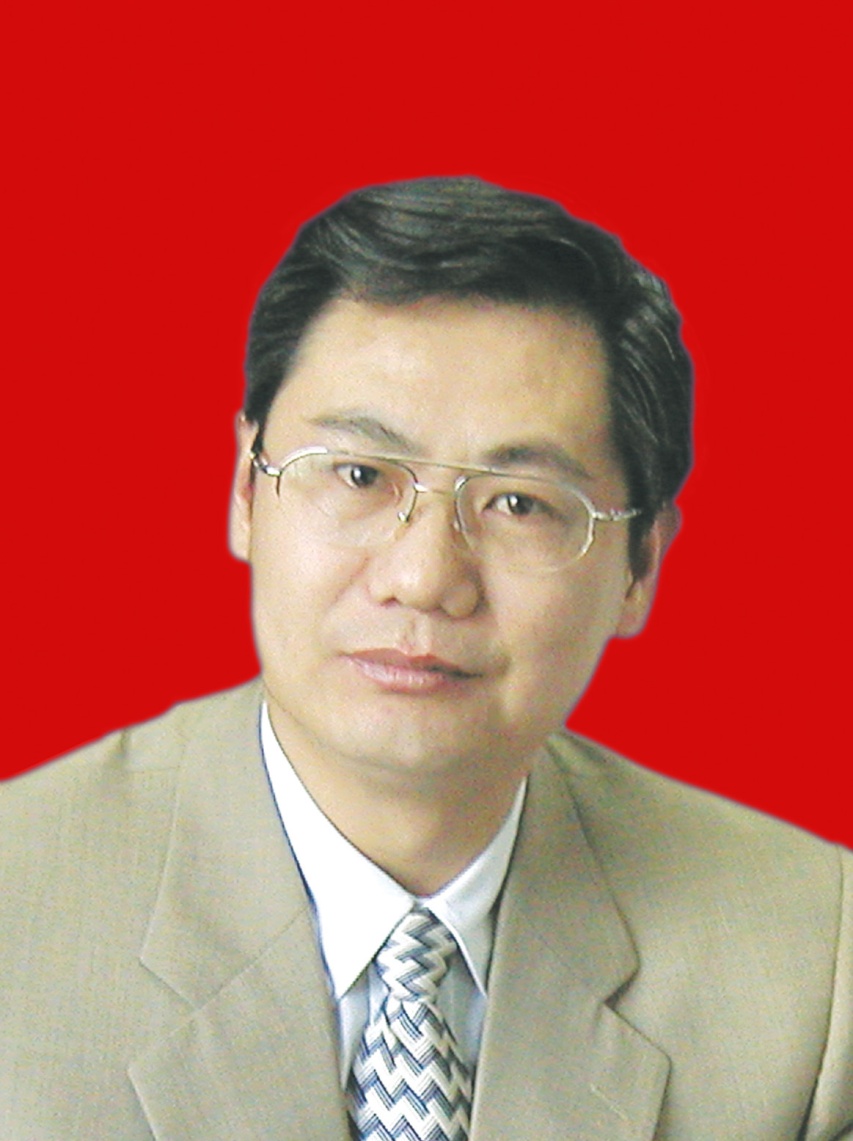2014 IEEE International Conference on Robotics and Automation (ICRA 2014)May 31 - June 7, 2014 Hong Kong, China |

 |

2014 IEEE International Conference on Robotics and Automation (ICRA 2014)May 31 - June 7, 2014 Hong Kong, China |

 |

Date: June 2, 2014 (Tue)
Time: 08:30-09:20
Venue: Convention Hall
Robot Enabled New Manufacturing Era in China |
|
 |
Professor Daokui QuSIASUN ROBOT & AUTOMATION CO. LTD.National Robotic Engineering & Research Center China |
| ABSTRACT The global manufacturing industry is facing daunting challenges in response to rapid changes of market demand, and to increasing cost in labor, material and energy. China as one of the world largest manufacturing basses are also experiencing increasing pressures from sharp rises in labor shortages and labor costs, thus making the Chinese traditional labor-intensive manufacturing industry unsustainable. The robot enabled and information technology based new manufacturing could be the solution to this problem. Several key questions related to developing robot enabled manufacturing will be discussed, including whether the functions, performance and reliability of current robots can meet the requirements for mass substitution of human workers, whether enterprises can afford the cost of the transition, whether such transition will result a large number of unemployment Furthermore, a comprehensive analysis of the Chinese robot industry will be presented. Through nearly ten years of continuous development, Chinese robot industry has developed into more than one hundred industrial clusters engaged in R&D, manufacturing, robot applications and robot components supplies. Shenyang SIASUN, Harbin BOSHI and other more than forty companies have been listed in stock markets worldwide. More than thirty robot industrial parks are under construction or planning all over the country. The major applications domains include automotive and auto parts, machinery, electronic appliances, pan semiconductor, plastic, chemical, pharmaceutical and food industries. In recent years, the growth rate of China's robot market has been the first in the world. In 2013 China had become the largest robot market in terms of sales. It is predicted that China will have the world's largest robot production as well as sales in the world by 2015. Furthermore, the Chinese government policies and strategies to encourage the development of robot enabled manufacturing industry will also be discussed. The issues will include R&D funding, investment, work force development, and re-training and re-employment. At the end, the expectations as well as the prospect for next phase of development for the robot enabled manufacturing will be presented. |
|
| BIOGRAPHY Dr. Qu Daokui is the CEO and one of the founders of SIASUN Robots and Automation Co. Ltd., the first robot company went public in China. He also serves as the Chairman of Chinese Robot Innovation Alliance, Chairman of Chinese Robot Industry Alliance, Director of the Robot Committee of Chinese Automation Association, Deputy Director of the National Robot Committee for Standardization of China. Dr. Qu has received many awards including National Award for Excellent Young Researchers in China, Young Scientist Award of the Chinese Academy of Sciences, GM China Awards for Science and Technology achievement. Dr. Qu is also a Professor of Chinese Academy of Sciences, and the Deputy Director of the National Engineering Research Center on Robotics. |
|
Date: June 3, 2014 (Tue)
Time: 08:30-09:20
Venue: Convention Hall
Deep Ocean Robotics – It’s Not About the Robot Stupid |
|
 |
Mr. Tyler Schilling,PresidentFMC Schilling Robotics Irvine, CA, USA |
| ABSTRACT Nearly three decades of robot development, manufacturing and service experience have taught Tyler Schilling many things about designing equipment for a challenging physical and commercial environment. Schilling Robotics has delivered more than 3,000 of the World’s most reliable robots for use in the deep ocean, with a focus on oil field applications. Designing a robot to perform a set of tasks can be a difficult undertaking; designing one that performs reliably is another matter indeed. In this presentation, Mr. Schilling will share his most valuable insights as well as his thoughts on where the industry will most likely go next. |
|
| BIOGRAPHY Tyler Schilling co-founded Schilling Robotics, along with Wes Gerriets, in 1985, with the vision of providing productive tools to remotely perform work in the deep ocean. As the president he sets Schilling Robotics’ vision to guide product innovation and development. Under his consistent leadership for over 28 years, and a never-ending passion for the pursuit of excellence, Schilling Robotics has established a worldwide market supplying intervention systems to virtually every operator of subsea remotely operated vehicles (ROVs). Mr. Schilling’s entrepreneurial growth of the Company has been built on fostering an environment of ensuring customer success. Mr. Schilling has been an innovator, advocate, and sought-after speaker for the expansion of remote technology on the sea floor. The introduction of Schilling manipulators to the industry has changed the capabilities of ROVs and they are currently used in 95% of subsea work. He holds three patents on subsea devices and has accumulated a wealth of experience and expertise in offshore operations. As a reserve power forward on the 1968 US Men’s Olympic Basketball team, Tyler has always operated Schilling Robotics with the focus and enthusiasm of a World-class sportsman. |
|
Date: June
4, 2014 (Wed)
Time: 08:30-09:20
Venue: Convention Hall
The European Human Brain Project (HBP) and Neurorobotics |
|
 |
Professor Alois KnollDepartment of InformaticsTU Munich and fortiss Munich, Germany |
| ABSTRACT The HBP is one of two European Flagship projects dedicated to long-term basic research with a planned funding of 1 billion € over 10 years. The ultimate goal is to gain profound insights into brain functions, develop new treatments for brain diseases and build entirely new computing technologies. HBP has three research areas – Neuroscience, Medicine and Future Computing – and will develop six ICT platforms, dedicated to Neuro¬informatics, Brain Simulation, High Performance Computing, Medical Informatics, Neuromorphic Computing and Neurorobotics. HBP is completely open, i.e., these platforms will be made available to all interested research communities worldwide, enabling them to profit from each other. Our vision is that interactive supercomputing, driven by the needs of brain simulation, will impact many industries. Devices and systems, modelled after the brain, are to overcome current limits on the energy-efficiency, reliability and programmability, clearing the road for systems with brain-like intelligence. The Neurorobotics Platform will offer scientists and technology developers a software and hardware infrastructure allowing them to connect pre-validated brain models to detailed simulations of robot bodies and environments and to use the resulting neurorobotic systems in silico experiments and technology development. In this talk, I will give an overview of the HBP within the context of European ICT research, outline the goals of the Neurorobotics subproject, and sketch the computation platforms and the soft robot technologies that will be used as the embodiment of the robot systems which are to be controlled by simulated brain models. An outlook on the work which is planned for the next two years will conclude my talk. |
|
| BIOGRAPHY Alois Knoll received the M.Sc. degree in Electrical/Communications Engineering from the University of Stuttgart, in 1985 and his PhD in Computer Science from TU Berlin in 1988. In 1993, he joined the University of Bielefeld, where he was a full professor until 2001. Between 2001 and 2004 he was a member of the board of directors of the Fraunhofer-Institute for Autonomous Intelligent Systems. Since 2001, he has been a professor of Computer Science at the Department of Informatics of the Technische Universität München TUM. His research interests include cognitive, medical and sensor-based robotics, multi-agent systems, data fusion, adaptive systems, multimedia information retrieval, model-driven development of embedded systems with applications to automotive software and electric transportation, as well as simulation systems for robotics and traffic. He initiated and was the program chairman of the First IEEE/RAS Conference on Humanoid Robots (Humanoids2000), and served on several other committees as well as editorial boards of international journals. He is the coordinator of the EU-Project ECHORD++, a large initiative for bringing together the robotics industry, research institutes and universities. In 2009, he co-founded fortiss, the Munich Software and Systems Institute, which is a large-scale joint operation between TUM and Fraunhofer. Prof. Knoll is a Fellow of the University of Tokyo, Japan. He is a member of the German Society for Computer Science (GI) and the IEEE. |
|